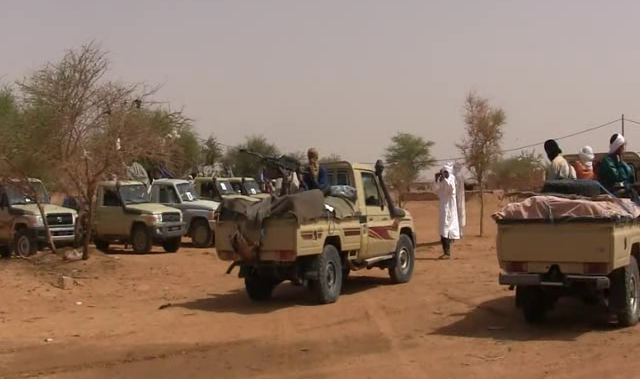On September 5, 2017, the United Nations Security Council unanimously adopted a sanctions regime against those who impeded the implementation of the peace agreement in Mali (resolution 2374). Jean-Hervé Jezequel, deputy director of the West Africa project at the International Crisis Group, is skeptical of the effectiveness of these measures. He answers questions from Sahelien.com.

Sahelien.com: Why does the Security Council find it useful to make this decision?
Jean-Hervé Jezequel: It has been two years since the implementation of the peace agreement signed in June 2015 has not progressed significantly. The few steps forward, such as the appointment of yhe interim authorities, have not had a significant impact on the ground. On the contrary, ceasefire violations have been recurrent for two years and are often the work of the signatory groups themselves. There are more armed groups today than before the signing ceremony in June 2015. In addition, groups claiming to be jihad seem to take advantage of this situation to expand their areas of activity. But today, nobody seems to have the energy to make an assessment of the misapplication of the current process and find ways to resume it. In the absence of « reprogramming the machine », one seeks tools that can restart the application of the current agreement despite its imperfections.
Sahelien.com: But why make this decision now?
Jean-Hervé Jezequel: In reality, the threat of a sanctions regime has been agitated by international partners for a long time, even before the agreement was signed. This is perceived as a means of pressure to compel local actors to comply with the peace and reconciliation process. By dint of agitating this red rag, armed groups ended up no longer believing or worrying about it. For several months, countries such as France, considered that this threat of sanctions had to be materialized by a resolution of the United Nations, others were not in favor. Two events have tipped the balance in favor of this adoption. First, the fighting between the Coordination of the Azawad Movements and the Gatia in July: the fighting was particularly violent and the political process was threatened. Then, and this is undoubtedly linked, the Malian government sent an official letter to the Security Council on August 8 to ask for a sanctions regime.
« Travel bans will not bother the leaders of jihadist groups … »
Sahelien.com: Can this sanctions regime really change things in Mali when it has been more than two years that the application of the agreement is seriously slipping?
Jean-Hervé Jezequel: We must not lie to ourselves. A sanctions regime is not the miracle solution that will change a situation that has been deteriorating for more than two years. At the bottom, what is most lacking in the agreement is the confidence of those who signed it themselves. However, imposing sanctions is not necessarily the most direct way to create trust. In addition, in the specific case of Mali, there are some measures that will have little impact: suspending the bank accounts of traffickers who some use only cash will have only a limited effect. Travel bans will not hamper jihadist leaders who are not used to visiting international airports or applying for visas. On the other hand, the sanctions regime, which is accompanied by the creation of a panel of experts, offers an additional tool to promote the implementation of the agreement. Its effectiveness will depend on the way it is used. In the case of Mali, individuals or groups who contravene the proper application of the agreement come from all sides, including sometimes very close to the State. The committee in charge of drawing up the list of people subject to sanctions will have a delicate task: will it have the courage to put pressure on all the various actors who are hindering the process? Is it not likely to be used by certain groups to exclude or index other groups, or even to settle certain quarrels related to trafficking? The balance of power within the sanctions committee, whose composition, I believe, reflects that of the Security Council, will be decisive.
Sahelien.com: Do we already know who might be on these lists?
Jean-Hervé Jezequel: As I said, it is difficult to say today because it will depend on how the panel of experts and the sanctions committee will work. But some people may be worried more than usual in Mali: finding one’s name on such a list is not insignificant, whether or not one has a good account bank and several passports.


